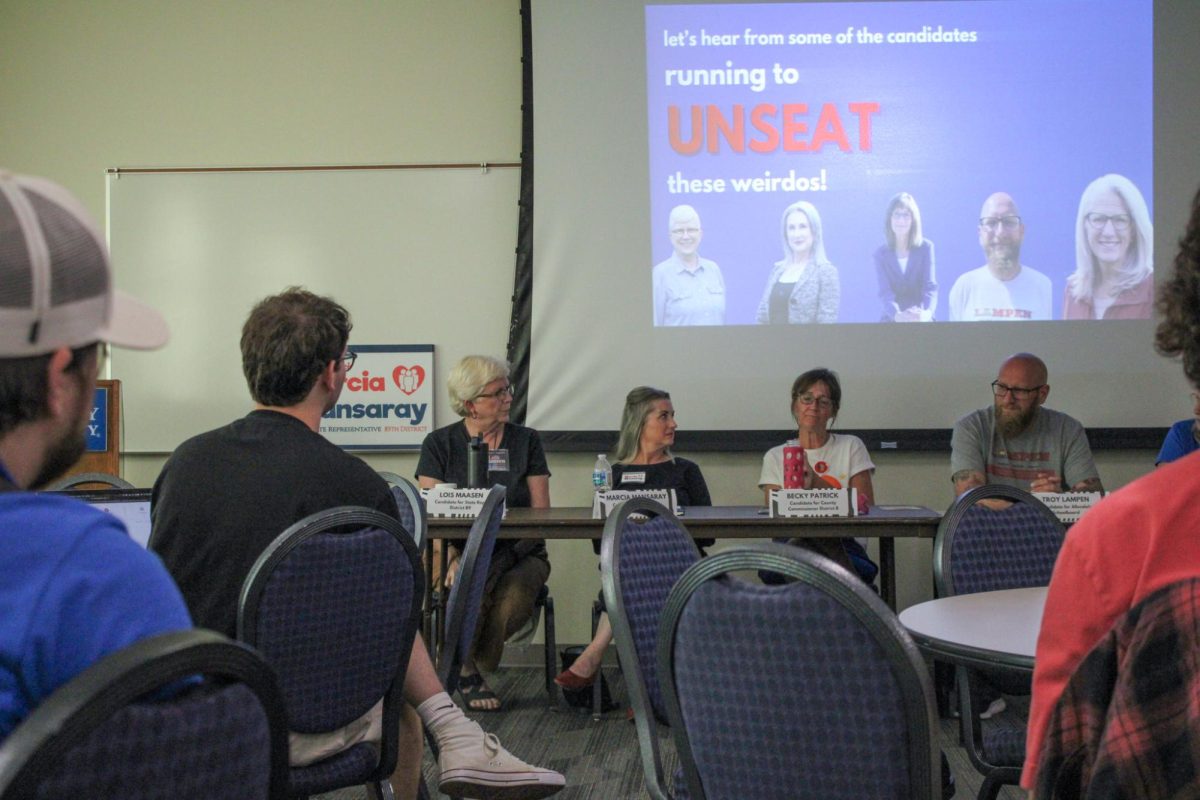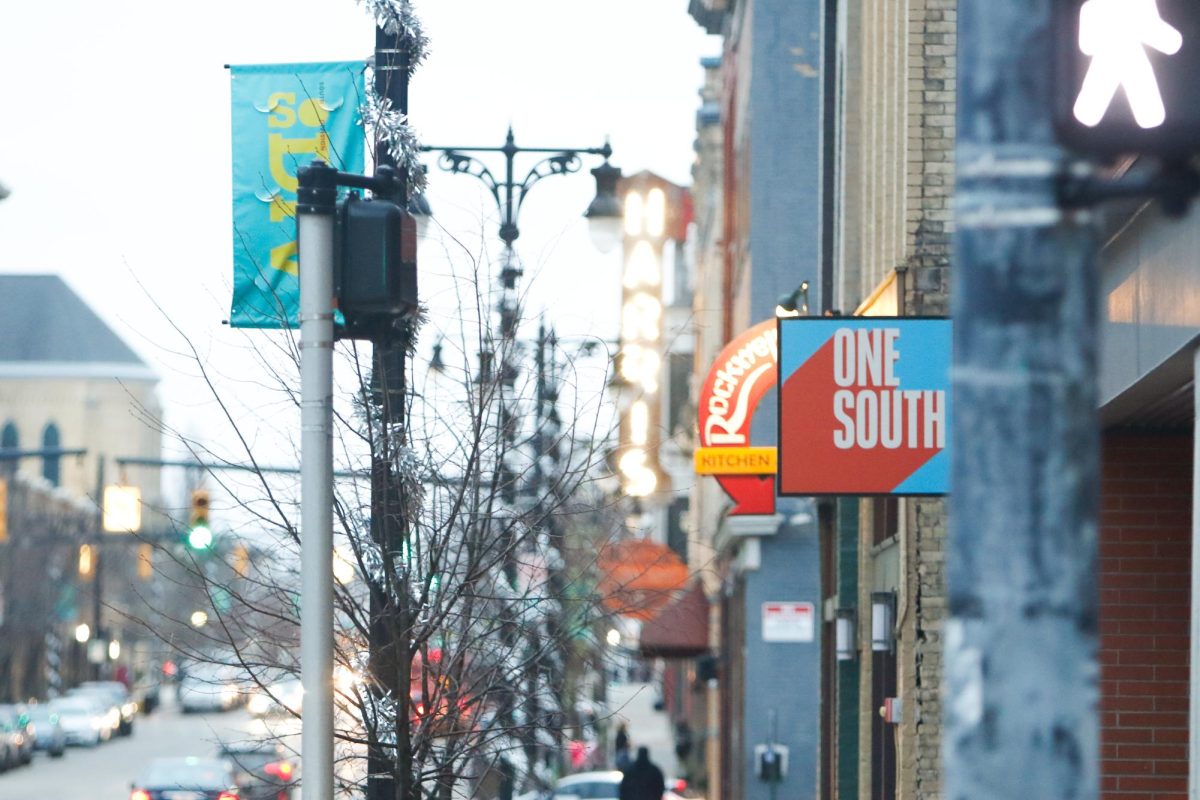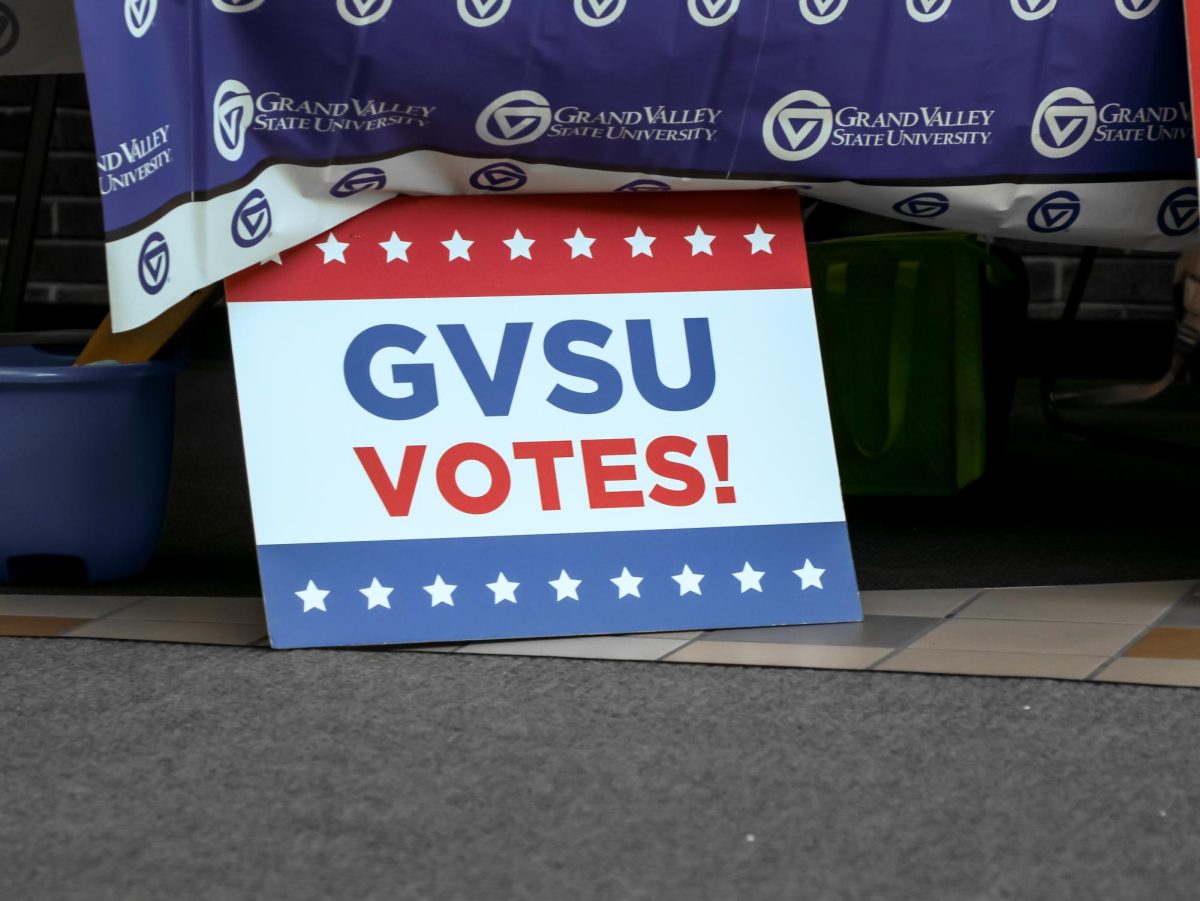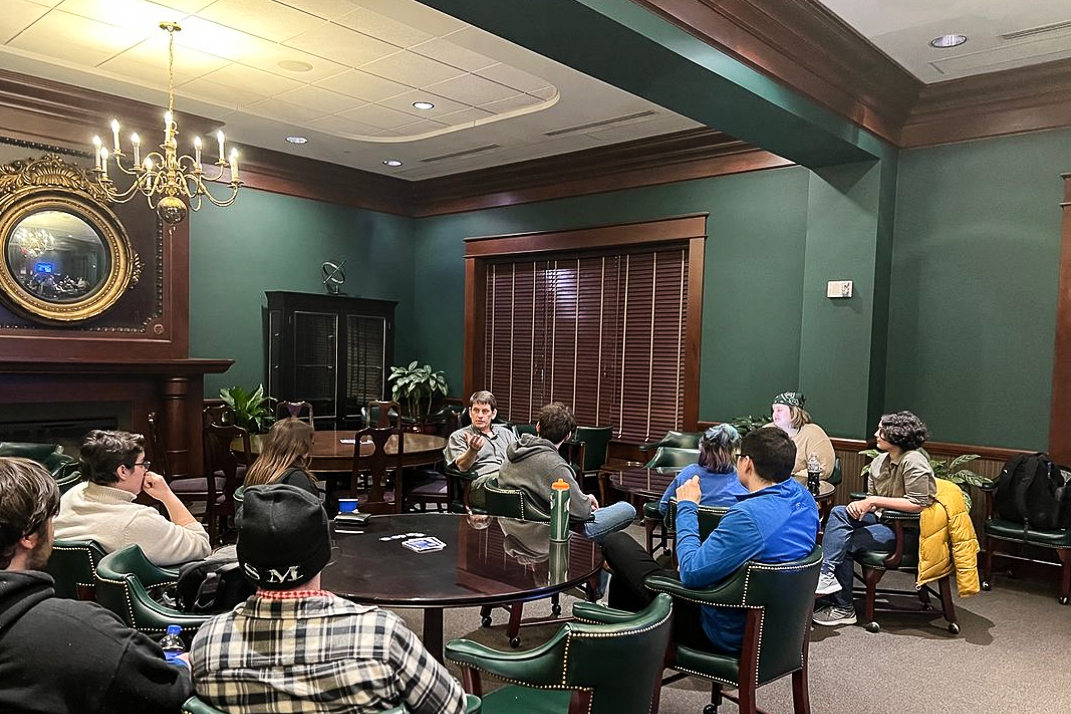After two years of controversy surrounding the inclusion of LGBTQ books in its inventory, the Patmos Library in Jamestown, Michigan has finally had its millage approved by voters in the form of a three-year property tax.
The vote, which won out with 62.8% according to the Ottawa County Clerk’s Office, comes after two unsuccessful bids to keep the library open in previous years.
The community in Jamestown disagreed about whether or not LGBTQ books and specific books with sexual content should be available for checkout in the public library. A consensus has been reached to allow the books to remain through a three-year millage renewed at a rate of 0.4119 mills, requiring the library to enforce a content warning: a blurb or description at the beginning of a book telling readers the kind of content they will be interacting with.
Jesse Dillman is a Jamestown resident who started a GoFundMe page for donations for the Patmos Library. The donations from the GoFundMe helped keep the library open for the past two years without any support from the county.
“I don’t think the government has any place regulating what knowledge people should not have access to,” Dillman said. “I think it’s fundamentally against the First Amendment for public libraries to ban or restrict books from the public.”
Dillman said he was glad to finally see the passage of approval for the library funding but questions the inclusion of content blurbs at the front of books and library censorship in general. He said the highly conservative county commissioners council millage motivation was less than genuine.
“This labeling policy is just a smokescreen, a virtue signal, that wastes librarians’ already limited time and resources,” Dillman said. “I think the real problem for this extremist group had nothing to do with any confusion about literary or visual content. One of the main catalysts for this whole situation was the book ‘Gender Queer.’ Is there anyone who sees that book’s title and cover and doesn’t understand that it’s about sexuality?”
Dillman recognizes the opponents to the library’s inclusion of LGBTQ materials may have been ill-informed, especially with heightened media coverage. However, he believes that the same attention “without a doubt” made more Jamestown people aware of what was happening.
“It gave them a bird’s-eye view of the issue, so they had a perspective beyond just the yard signs about ‘groomers’ and ‘pornography,’” Dillman said. “I think the more reasonable majority in Jamestown became better informed because of the news coverage.”
Dillman said the strength of the opposing voters’ and council members’ disapproval was surprising but indicative of a larger feeling in Ottawa County.
“I think Patmos’ success will be more impactful for libraries and communities around Ottawa County more than anywhere else because the political situation here is unique,” Dillman said.
The community’s approval for the funding, with the caveat of content warnings, implies a trend going forward for all books to have some staff-sourced content descriptions.
Jon Jeffryes, Associate Dean for Curriculum, Research and User Services at Grand Valley State University was intrigued by the potential impact of the decision. He said it ultimately depends on what the citizens who use the library would like.
“Many books already include cover information that gives an overview of the book’s contents,” Jeffryes said. “I think it’s probably best to consider the idea on a community-by-community and book-by-book basis.”
Even so, Jeffryes said it should ultimately be up to the reader what they decide to consume.
“I think libraries should allow individuals to make the decision for themselves about what books they do or don’t read, instead of making that decision on behalf of others,” Jeffryes said.
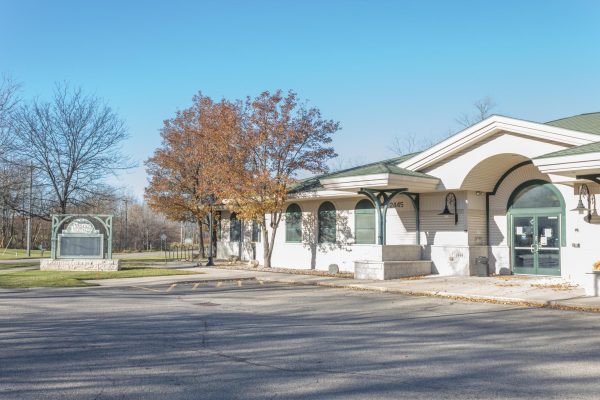
Jeffryes said GVSU books that educate and supplement coursework are of primary concern, regardless of content.
“So, if it supports student learning or faculty research, we try to purchase it when a request is made,” Jeffryes said. “We have a collection policy that outlines our approach to purchasing materials.”
Cara Cadena, Head of Collections and Digital Scholarship and Acting Director of Library Access Support Services for GVSU Libraries said banning books and increased censorship is a slippery slope.
“I believe banning books is a dangerous practice that threatens our fundamental right to free speech and the pursuit of knowledge,” Cadena said. “Public libraries are meant to be places of learning, where people are exposed to a range of ideas and perspectives.”
Cadena said the blurbs may have been more of a peace offering by the library than an actual functional feature with readers in mind.
“I don’t know whether blurbs at the front of books will help readers, but this is an example of the compromise the library had to make in order to keep its doors open,” Cadena said. “I think it places an undue burden on library staff, resulting in extra processing time, etc. But again, it’s a compromise.”
Cadena was grateful that at GVSU, libraries at a higher educational institution have a readership that comes with a certain maturity and knowledge which allows them to house many types of diverse and interesting books, regardless of content.
“We are fortunate in that we do not face the same pressures as public libraries,” Cadena said. “We serve adults who are capable of making their own reading choices. Our library (GVSU’s) supports a solution that does not censor or needlessly elevate, but one where real acquisitions and budget decisions are made so every student can find themselves represented in disciplinary scholarship.”
For more information on GVSU’s libraries, visit the university’s libraries page.




